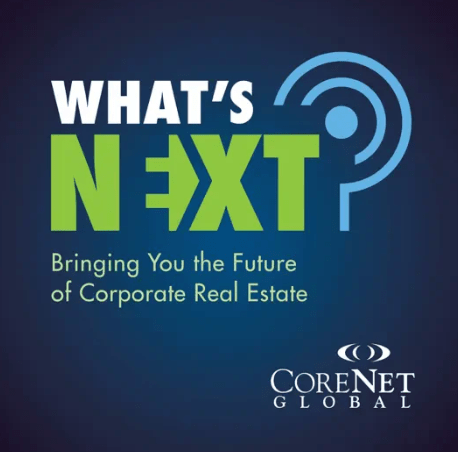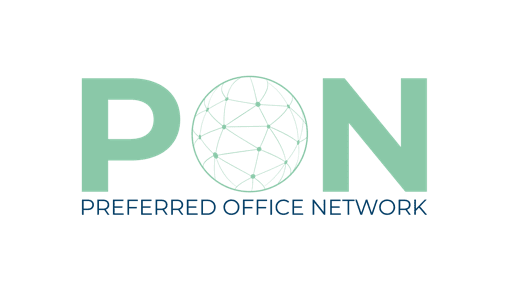
New Podcast Alert: Michele Penaranda Talks to CoreNet Global About the Future of Flex
How can traditional real estate and flexible workspaces merge to create a new product that meets the needs of today’s enterprise companies and their employees?
That thought-provoking and timely question was the basis of a new episode of CoreNet Global’s What’s Next Podcast featuring Preferred Office Network Vice President Michele Penaranda. Michele joined host Tim Venable to discuss the future of the workplace — and how flex is meeting the needs of today’s organizations and their workers.
CoreNet Global’s What’s Next Podcast series features conversations with industry experts and business leaders focused on the trends and topics that are shaping the future of real estate. CoreNet Global is a nonprofit association aiming to advance the practice of corporate real estate through professional development opportunities, publications, research, conferences, chapters, and networking groups.
Here are some of the key takeaways from the insightful episode, which you can listen to here.
How the Workplace Has Changed
To kick off the conversation, Michele shared Preferred’s origin story: In 2010, three coworking operators came together to provide a national network of flexible workplaces for enterprise clients with multiple market needs. By offering both the adaptability and simplicity that coworking presents, flex has become a viable solution for organizations of all sizes, especially over the past few years during and since the pandemic.
“By creating this network of operators, Preferred is able to offer clients one master service agreement and a level of account management that delivers an efficient approach in handling their space requirements from the search phase through invoicing,” Michele explained.
Of course, the very way that people think about where and how they work has shifted dramatically. What was once considered a progressive workplace concept — forgoing traditional office space for more flexible arrangements — has now become mainstream, with many companies rethinking their real estate footprints.
Some of the top ways the very idea of the office has evolved:
- Employees now demand the many advantages of working closer to home. Companies often no longer need one main headquarters or hub; now, several satellite offices fulfill this new demand.
- Organizations and employees need spaces that can adapt to different working conditions and styles. Workplaces shouldn’t be static environments but rather living, breathing entities that evolve with their inhabitants’ changing needs. Businesses need to consider their company culture and the various ways individuals and departments operate and consider the design, services, and amenities of their workspaces accordingly.
- When employees are in an office environment, they need these spaces to work for them. As the return-to-the-office debate rages on, organizations need to think about what brings workers together — the need for creativity, collaboration, and connection — and how their workspaces can support these requirements.
- Traditional office space can’t easily meet these demands. Companies are in constant flux and in need of workplaces that can adapt and accommodate changes in utilization. Traditional offices, with long-term leasing structures and fixed floorplans, aren’t able to evolve with these organizational shifts. Flex can solve for this and, in doing so, play an important role in defining the future of the workplace.
Bridging the Gap: Where Traditional Real Estate and Flexible Workspace Meet
“The more we can bridge that gap between these two worlds can be a win-win-win for the landlord, the operator, and the enterprise client.”
Michele introduced the new Preferred Suites product offering, which presents the best of both worlds: larger standalone office spaces that can accommodate enterprise clients located within buildings that also house a Preferred member center. This partnership of commercial real estate and flex is a “dynamic duo,” as Michele describes it. The coworking operator is the “heart of the building,” understanding how to optimize the space with the services, amenities, and hospitality of the coworking center that attracts and retains enterprise clients.
“Because we know the building the operator is in most likely would have the space, why not help facilitate an extension of the coworking center? In taking that available space in the building, the client gets a larger standalone space and can access the coworking center fully, with all of the same amenities, element of support, and more flexible terms with the same simple 2-page service agreement that our clients already know.”
Listen to Michele and Tim’s conversation and get in touch to learn more about our offerings, including our new Preferred Suites option for enterprise clients looking for more space and less stress.
